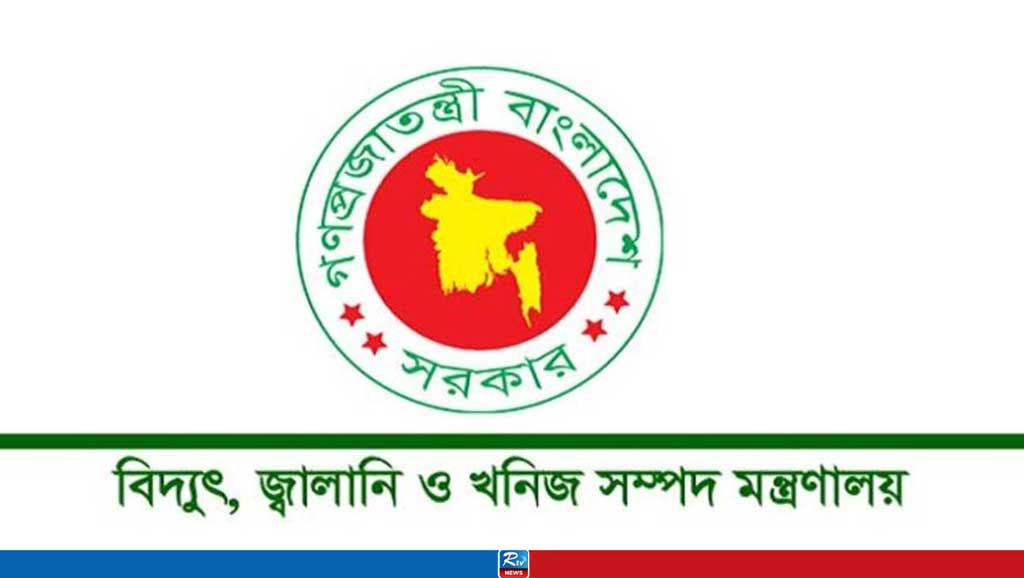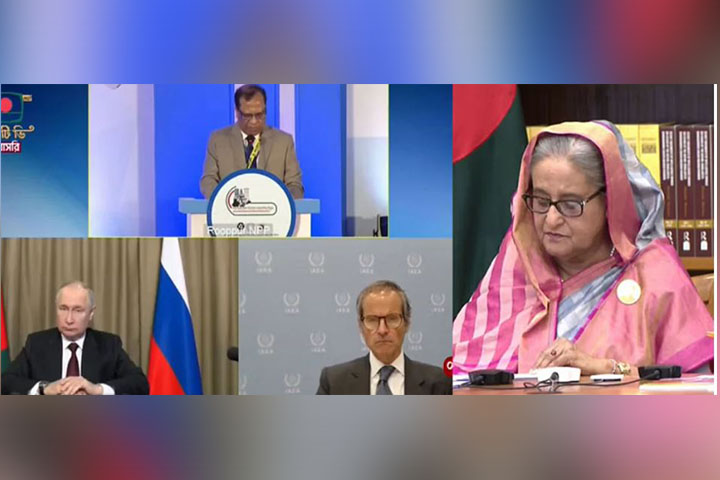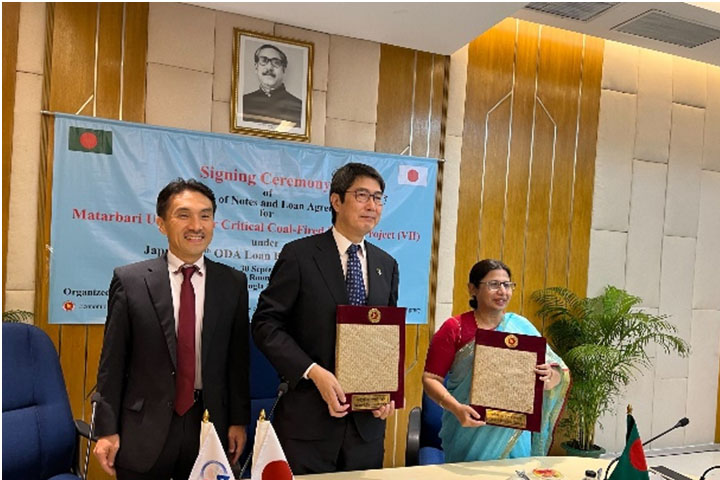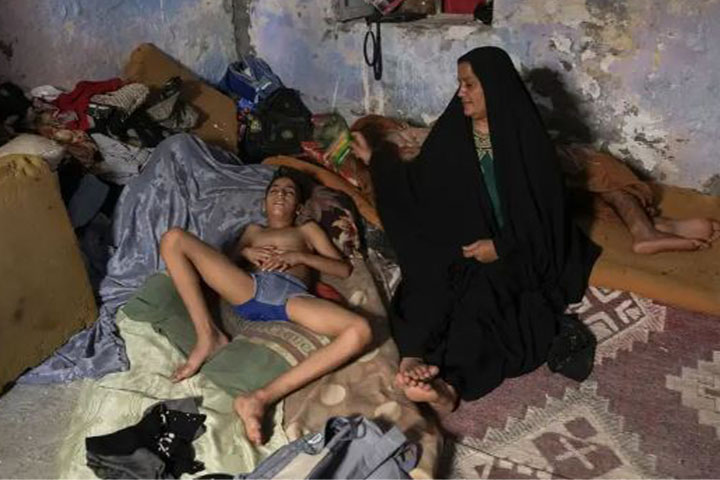Tripartite Power Accord on the horizon: Illuminating Bangladesh with Nepalese energy via India
A ground-breaking energy collaboration is poised to reshape the power dynamics of South Asia. Nepal, Bangladesh, and India have inked a historic tripartite agreement which was fortified during Nepalese Prime Minister Puspa Kamal Dahal's recent visit to India in June 2023. This pact unlocks the potential for hydroelectricity from Nepal to flow to Bangladesh via India's robust transmission infrastructure. Amidst Bangladesh's recurring blackouts due to currency limitations impeding fuel imports, this alliance provides a lifeline.
In tandem, Nepal's surplus hydroelectricity harnesses at 97% capacity will find a much-needed outlet. India is an instrumental collaborator in this transformative journey with its ambition to achieve 500 GW of non-fossil energy by 2030. The high-voltage transmission line, sponsored by the Asian Development Bank, links Bheramara in Bangladesh with Baharampur in India, marking a pivotal stride towards cross-border electricity exchange. Its establishment augments regional energy security, especially relevant in today's energy-insecure world. This joint initiative symbolises mutual understanding and neighbourly collaboration. It beckons an era of seamless cross-border energy transmission underscores the paramount importance of united efforts in enhancing regional stability and shared prosperity.
The power-sharing agreement between India, Bangladesh, and Nepal is set to transform the energy scenario of the South Asian region. The three countries recently concluded a tripartite agreement that will enable the transfer of hydroelectricity from Nepal to Bangladesh using the Indian grid and transmission lines.
The deal came to fruition when the Nepalese Prime Minister Puspa Kamal Dahal last visited India in June 2023. After the meeting with his Indian counterpart, Indian PM Narendra Modi allowed the use of the Indian transmission line to boost energy connectivity within the South Asian region.
Bangladesh is facing frequent blackouts as it is faced with the problem of depleting foreign exchange reserves which is making the import of fuels difficult for the country. On the other hand, Nepal is blessed with surplus hydroelectricity, nearly 30 per cent more than its domestic requirement, during the wet season and is therefore seeking to sell the excess power to Bangladesh. Since there is an absence of any grid connectivity between
the two countries, both countries sought India’s help, which India as a good friend and neighbour to both the countries, readily agreed to.
The power companies from the three countries – Bangladesh, Nepal, and India –
Bangladesh Power Development Board, Nepal Electricity Authority, and NTPC Vidyut Vyapar Nigam (NVVN), respectively, have entered into a collaboration for cross-border power trading using the Bahrampur-Bheramara high voltage line.
This high voltage transmission line, connecting Bangladesh’s western electrical grid at Bheramara with India’s eastern grid at Bahrampur. After the conclusion of this tripartite agreement, this Asian Development Bank-funded USD 193 million high voltage line will pave the way for cross-border electricity trade. Notwithstanding this line, Bangladesh and Nepal are already considering a transmission line through India that will solely be dedicated for the bilateral electricity trade between Nepal and Bangladesh.
It is important for Nepal to be able to transfer its surplus electricity to prevent, or at least reduce, the wastage. With a total installed capacity of 2,600 MW, Nepal produces over 97 per cent of its electricity through hydropower. At present, Nepal is exporting around 450 MW of its electricity to India. But Nepal has been increasing its hydropower output to meet the electricity demand for dry season. This increased output turns into surplus power during the wet season which Nepal needs to export, and thus in search of a market. With a power-sharing agreement with India already in place, Nepal sought to export some of the excess power to Bangladesh.
Bangladesh, on the other hand, is seeking electricity to meet the shortfall in its own power generation and fulfil the power demand of the country. However, in the near future Bangladesh needs to make a seamless transition from conventional sources of energy to
renewable energy source. This is necessary to ensure not only its energy security but also for long-term sustainability. In the aftermath of the breaking out of Russia-Ukraine crisis, developing and least-developed countries have been facing a looming threat of energy insecurity. Given the context of this war, cross-border energy cooperation and rejuvenating the idea of a power corridor is necessary for Bangladesh to mitigate its power crisis.
Since Nepal is a land-locked country, Nepal’s plan to export its surplus power to Bangladesh would require India’s assistance and support. In the initial phase, Bangladesh and Nepal have decided to trade about 40 to 50 MW of electricity using cross-border power transmission link facilitated by India. As per the Central Electricity Regulatory Commission (CERC) of India, it is allowed to do cross-border trade where India’s involvement is present. A specific provision of the tripartite agreement allows the Indian authority to become a party to the bilateral framework through signing of an agreement between the Government of India and the governments of the respective countries.
Since India itself is looking to transition to a Green India through a focus on renewable energy production with a goal of generating 500 GW from non-fossil sources and use 50 per cent renewable energy by 2030, India can use the power corridor of Bangladesh to reduce the cost of power generation. Bangladesh itself is looking to get a power mix of 40 per cent from renewable sources by 2050 from the present 3 per cent mix.
This tripartite agreement is therefore going to usher in an era of cross-border power transmission in a seamless manner that will boost energy security in the South Asian region. This cooperation augurs well for the entire region as evidence of collaboration among neighbours for the mutual benefit of all.
In conclusion, the tripartite power-sharing agreement among India, Bangladesh, and Nepal stands as a transformative milestone in reshaping the energy scenario of South Asia. This collaborative effort addresses critical energy challenges faced by Bangladesh while providing Nepal with a valuable outlet for its surplus hydroelectricity. India's role as a facilitator and collaborator in this venture through its formidable transmission network underlines its commitment to renewable energy goals. The establishment of the Asian Development Bank-funded high-voltage transmission line between Bheramara and Baharampur further strengthens the regional energy infrastructure, enhancing energy security in a volatile global energy context. This initiative embodies the spirit of cooperation among neighbouring nations, setting a precedent for mutual prosperity and sustainability. As the world grapples with energy insecurity, this partnership signifies a beacon of hope and regional stability. It underscores the necessity of cross-border energy cooperation and the potential for collaborative endeavours to address energy crises. Ultimately, it exemplifies the power of unity in advancing shared goals and securing the energy future of South Asia.
Dr Maheep is a leading analyst of India’s Foreign Policy. He is the Principal investigator of a National Project on India’s Soft Power Diplomacy
22 Aug 2023,10:48
















 Live Tv
Live Tv









